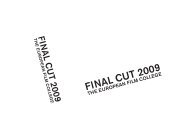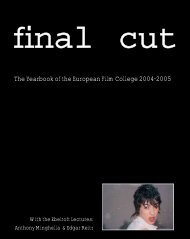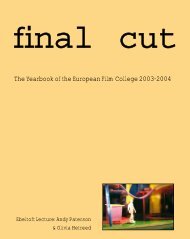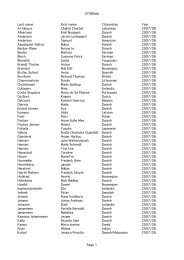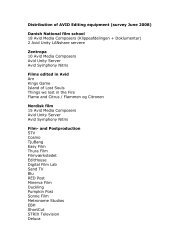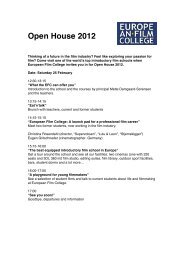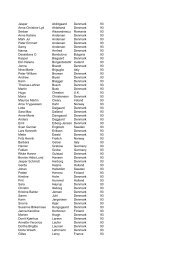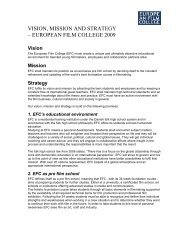yearbook 2010/11 - The European Film College
yearbook 2010/11 - The European Film College
yearbook 2010/11 - The European Film College
You also want an ePaper? Increase the reach of your titles
YUMPU automatically turns print PDFs into web optimized ePapers that Google loves.
eality, which is to be found in the lives of ordinary people, and which is excluded from<br />
ordinary drama. And every once in a while you have to have a neorealistic movement<br />
to bring that in, because for many reasons most writers, distributors and investors<br />
don’t want to tell about the working people’s lives, because you don’t leave<br />
the cinema feeling happy – because, you know…life is hard. We like<br />
to avoid those kinds of stories, we want to talk about dramas,<br />
falling in and out of love and jealousy…which is not to be excluded<br />
either. But it has excluded, by the very nature of the way the business<br />
works, the stories about very ordinary people, because it’s the thought<br />
that ordinary peoples lives are boring.<br />
To see neorealism as a total answer is limiting. To see it as a counter<br />
to what the industry proposes and prefers to show is very necessary.<br />
It’s very necessary to go back into the streets and into the lives of<br />
ordinary people.<br />
#43<br />
neo r e a l i s m – ta k e t h e f i l m i n t o t h e s t r e e t s||fi n a lCu t 20<strong>11</strong>



